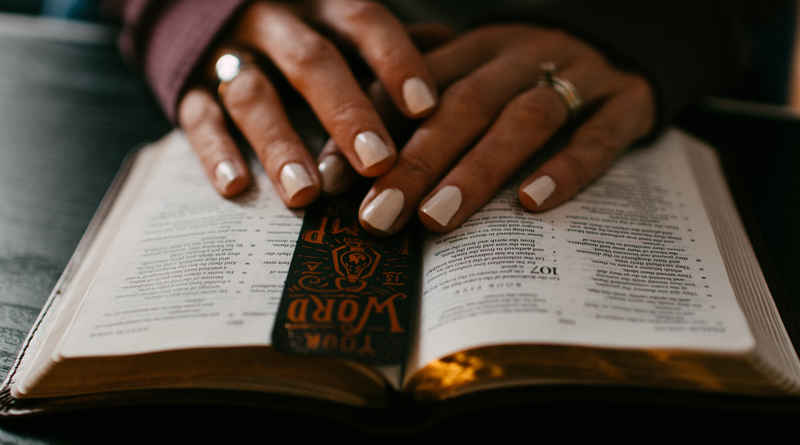Why is it wrong for a nurse to offer prayers?
A few years ago I came upon a woman weeping on a train platform. Through tears and halting words, she told me her boyfriend had broken up with her. It was the latest in a string of failed relationships and she felt her life was worthless.
As we got on the train I gave her some tissues and then asked if I could pray with her. When she agreed, I mumbled some words about God loving her and her life being precious to him and asked that she be blessed and made whole. Then it was my stop. I got off the train and never saw her again.
I have often asked strangers if I can pray with them: at the homeless shelter in which I volunteer; on public transport; in the prison I visit once a month with my church. Prayer is the first thing I do when I have a problem or when I’m in distress. It is therefore the most sincere thing I offer when I meet people who are in difficult situations themselves.
So I understand why Sarah Kuteh, who made the news at the weekend, offered to pray with her patients. Kuteh, a nurse at the Darent Valley hospital in Dartford, Kent, U.K. deals with patients on their way to surgery. It can be a distressing time. She may simply have been offering them the hope that she held on to in her own times of trouble. Nevertheless, some patients complained about her offers of prayer and she was dismissed for gross misconduct. The trust that runs the hospital says: “We have a duty to our patients that when they are at their most vulnerable they are not exposed to unsolicited beliefs and/or views, religious or otherwise.”
No one should be prayed for who does not want to be. But how do you know who would like prayer if you never offer? How many were comforted by Kuteh’s prayers? Did anyone ask?
In the times I have prayed with strangers, I’ve had a mixture of responses. For those with faith of any kind, even a glimmer left over from childhood, they understand this reaching for the comfort of heaven when Earth feels like hell.
And for those without faith, who still accept my offer, I’ve seen two kinds. The pragmatic who has tried everything and so may as well try this. And those who see me as a stranger wishing them well. Both types may not care much about God but they are touched by the concern of a fellow traveller who hopes that their path is made smooth.
Last week Theresa May said Christians shouldn’t be afraid of speaking about their faith in public and at the workplace. I don’t know about afraid, but I’m certainly wary. After all, this is the same country in which a woman had to sue her employers for the right to wear a cross at work. Any public identifier of your Christian faith, no matter how small, can quickly escalate to ridiculing.
In a time where different religious groups are gaining visibility, I feel cut out of the story. I rarely see Christians in films, soaps, bestseller lists, magazines. When I read reports on Christianity, it’s often predictions on how long it will take for Christianity to die out in the UK.
Yet I know so many young, vibrant, alive Christians. When I go to Holy Trinity Brompton or Hillsong London or Jesus House on a Sunday morning, the last thing I feel is dead. When I read Magnify magazine (tagline: Faith, Fashion and Feminism), I certainly don’t feel like a fossil. Yet when you go to your office on a Monday and someone asks what you did at the weekend, you mention the cycling and the concert but you leave out church, even though it’s one of the most important parts of your life.
Can faith be abused in the public sphere? Yes, of course it can. But so can secularism. So can democracy, which should be the voice of the majority, not the tyranny of the majority. So can our obsession with healthy eating and post-Christmas diets. So can almost everything.
The early Christians were thrown to the lions for their faith. They were stoned to death, crucified upside down and killed in a long list of gruesome ways detailed in the Acts of the Apostles. Today, Christians have been beheaded by Islamic State in Syria and have been targeted in Egypt and the northern parts of Nigeria. In light of this, Christians in the UK can consider ourselves fortunate that we can still gather freely to worship, even though we can often feel our views and beliefs are marginalised.
I pray for Kuteh. I pray she has family around her and people to support her now that she doesn’t have a job. Most of all, I pray that we don’t get discouraged from passing on hope in whatever way we know how, be it with prayer, a kind word, or a seat on the train in rush hour.
Written by Chibundu Onuzo as seen in the Guardian on Monday 12 December 2016
Chibundu Onuzo, a Nigerian writer, is author of The Spider King’s Daughter. Her second novel, Welcome to Lagos, is out in January 2017.




0 Comments